The last winter of the emperor. Napoleon of the end of 1813 of the year
12 failures by Napoleon Bonaparte. Such a defeat as that of Leipzig, the French did not yet know. Its scope exceeded all expectations. More than 70 thousand people were killed, injured, captured or simply fled. Napoleon lost 325 guns and 900 charging boxes, the enemy got 28 banners and eagles, as well as countless other kinds of trophies.
Prelude to the last act
Napoleon could hardly recover from a terrible blow in the “Battle of the Nations”, but in order for the drama to really end, he had to be left without an army at all. This will happen later - after the defeat at Waterloo. After Leipzig, the French emperor was a wounded beast, perhaps mortally, but still only wounded.
In addition to direct losses, no less dangerous for the empire was the loss of control over Central Europe. Together with the remnants of the Great Army, the serf garrisons from Oder, Elba and Wesel could not retreat, which actually constituted another army, albeit not as combat-ready as the best Napoleonic regiments. Marshal Gouvion Saint-Cyr would have been forced to capitulate in Dresden, and Davout was locked up in Hamburg.
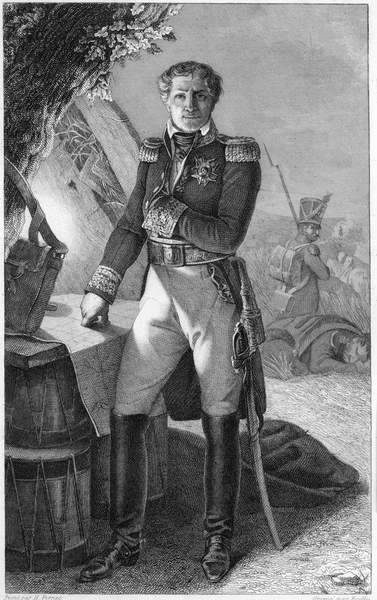
The superiority of the allies in the forces became too obvious to be compensated by the Napoleonic genius. However, most importantly, after the Russians of Napoleon, the Prussians, Swedes with Saxons and even Austrians ceased to be afraid. However, the latter already in 1809 showed the French their ability to fight to the last.
The caution noted by many historians of their commander, Prince Schwarzenberg, was quite understandable - for a long time even the frantic Blucher did not dare to fight alone against the main forces of the French. Marshal "Forward" in the company 1813 of the year was not inferior to Napoleon in bold decisions and mastery of execution.
Perhaps the last of the German allies from the emperor, the Bavarians recoiled. The future Field Marshal C. von Wrede, who had made several trips side by side with the French, managed to sign an agreement with Prince Reiss, representing Austria's interests, in the Tyrolean town of Ride on October 8, a week before Leipzig. Wrede received from his overlord, King Maximilian, the right to decide for himself when to leave the Emperor Napoleon, leaving the Rhine Union.
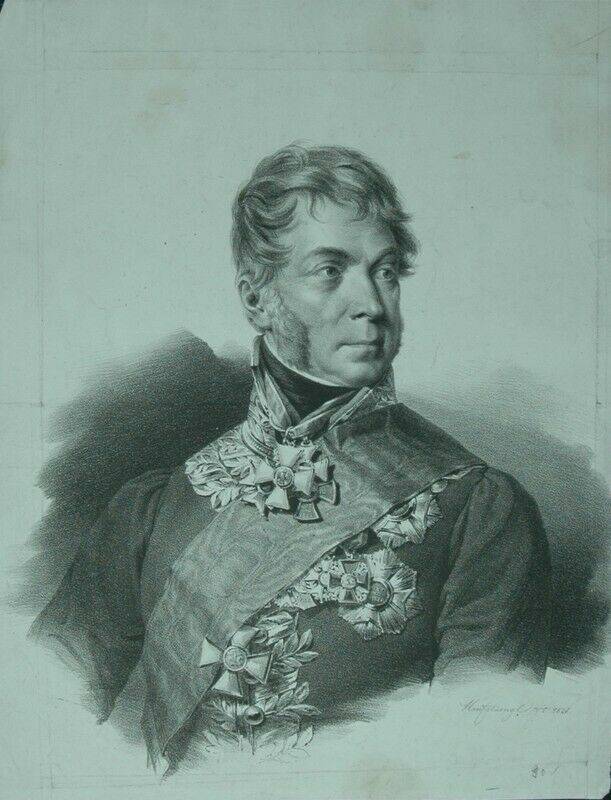
It was to the Bavarians, who were actually behind the French army, that the task fell of cutting off her retreat. It was not possible to deliver a mortal blow to the French near Leipzig - Schwarzenberg did not give the order to the reserves to cross over Elster in a timely manner. In this case, very few could leave the Great Army. The most amazing thing was that there was enough fresh energy for such a maneuver, but the Corsican again slipped away. The Allies prepared the second Berezina on the Rhine.
In the meantime, Napoleon, whose troops hurriedly left Leipzig, managed to place the remaining units between Markranstedt and Weissenfels. Russians, Austrians, Prussians and Swedes were also exhausted in the “Battle of the Peoples” and preferred the “golden bridges” for Napoleon to powerful persecution, for which military historians still criticize Kutuzov.
The great army still managed to snarl on the banks of the Saale near Neuselin, but its main forces went to Erfurt - the big road leading to Frankfurt am Main and further to the Rhine.
Nobody wanted to win
Not only the Napoleonic army, but also the allies were in a state that boxers commonly called "groggs." Only almost fresh forces of the Northern Army of Bernadotte could do something, but their commander habitually waited. Perhaps at that time he was seriously thinking not about the Swedish, but about the French throne, and in such hopes he was occasionally supported by none other than the Napoleonic Foreign Minister Talleyrand.
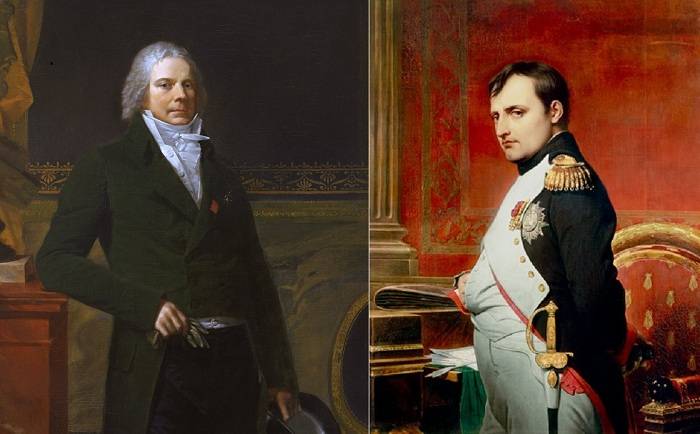
Moreover, the very treaty of Reed, which was immediately approved by the Prussian king and the Russian tsar, became a kind of foundation for a policy of restoring the old European dynastic order. Without Bonapartes. But for the unification of Germany, which Gneisenau was so hungry for, Scharngorst and, of course, Blucher, who had just received the rank of Field Marshal for Leipzig, the time has not come yet.
The return of Bavaria to the ranks of the anti-French coalition happened at the time when Napoleon had already squeezed all the juices out of it, but all the electors of the Wittenbergs were recognized as kings. At first, Wrede himself did not expect to meet with the Great Army, believing that it was withdrawing to Koblenz.
With small forces (43 total of thousands of people), he would hardly dare to stand in the way of Napoleon, especially since the chances of support from the Allies were very doubtful. Even Blucher did not have time to Ganau. It was there that the Bavarians, who equally hated both the Prussians, the Austrians, and the French, decided to fight the former allies, although they planned to defeat only the flank guards with a force of about 20 thousand people.
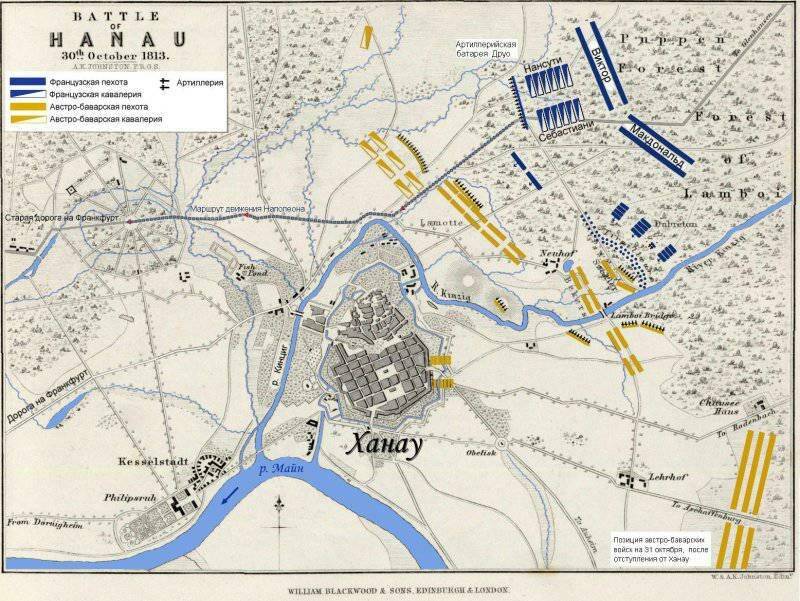
Allied forces did not have time to Ganau for several reasons. The main thing is that Blucher, who was once again forced to act alone, had to retreat to Giessen and Wetzlar. To confront Napoleon, he again lacked the strength. But Wrede had even less strength. In addition, the large headquarters of the Allies also believed that Napoleon would return to Koblenz for crossing the Rhine.
In principle, Harm could have resisted if the pressure on Napoleon from the rear was any tangible. But then the Great Army would certainly go through Koblenz. But on 28 of October at Ganau three Bavarian and two Austrian infantry divisions with cavalry lined up against her, supported by the Russian cavalry detachment of General Chernyshev.
Wrede sent another division back to Frankfurt. There is only one passage from Ganau to it, and the ancient city itself was located at the mouth of the Kinzig River along its southern bank at the confluence of the Main. The French who approached immediately began to look for a more favorable position for the attack, since a detour would require too much power to stretch, resulting in loss of superiority, as well as risking a blow to the rear from Blucher or the main army of Schwarzenberg.
Blood for blood
The battle unfolded only on 30 of October, the Allies lost time, during which they could completely trap the French. By the beginning of the attack near Ganau, Napoleon had at his fingertips no more than 17 thousands of infantry, Marshal MacDonald and the cavalry of Sebastiani, but the dense forest did not allow Wrede to assess the strength of the enemy.
However, the young Bavarian troops, in whose ranks there were only a few who were able to return from the Russian campaign, fought with rare dedication. The French fell on the left flank of Wrede, constantly receiving reinforcements, and the Bavarians limited themselves to defense, counting on the approach of the main allied forces.
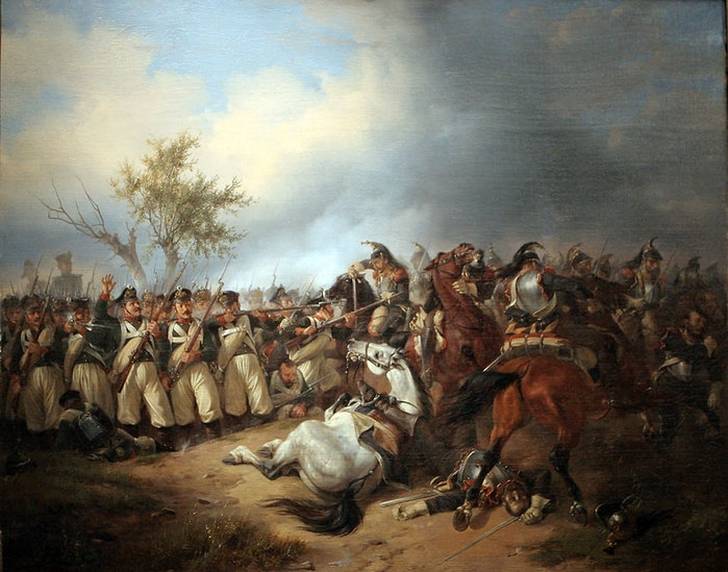
A series of attacks by infantry and cavalry, which was soon supported by the guards' cannons pulled to the edge of the forest by General Drouot, forced Wrede to order the withdrawal of the left wing cavalry in Ganau. The right flank, which consisted of infantry, was drawn towards the other side of Kinzig towards evening, and the crossing had to be carried out under cross-section artillery and rifle fire of the French.
New positions Wrede, who received a severe wound, was directly on the road from Ganau, which had to be left under the threat of blocking two rivers in the raster. The left flank rested on the Main channel, the right - in the dense forest. Napoleon’s army, which had already concentrated all of its 60 thousands, entered the Ganau the next morning, and the Bavarians remained on their flank.
The French did not dare to march past them, fearing a blow to the wagon train and rearguards from the forces of the allies, who could have time to unite. Meanwhile, neither Blucher nor the Bohemian Main Army managed to get to the battlefield.
The decisive blow of the buildings of Marmont, Bertrand and Ney forced the Bavarians to retreat even further away from the main road. The French were given the opportunity to return to their Kinzig shore and continue the retreat. Harmless, despite the wound, he continued to lead the battle, but Ganau gave the order to attack only when most of the Great Army advanced towards Frankfurt.
Napoleon managed to pass New Berezina quite easily, although two battalions from the Bertrand corps, which were left in Ganau to cover bridges over Kinzig, were almost completely destroyed. Together with them, the French lost about 10 thousands of stragglers and wounded, among whom was the famous Polish general Sulkovsky, who replaced the deceased Marshal Ponyatovsky.
What is there behind the Rhine
After the bloody battle at Ganau, Napoleon managed on November 2 to escape through the Rhine at Mainz. Blucher's Silesian army could only observe the retreat of the French rearguard. On November 4, Blucher wrote to one of Giessen's associates with undisguised irritation:
But he was still weak to completely destroy him. I constantly followed the French emperor on the heels and daily came to the bivouacs that he left. I was left on this path, I stepped right behind him when he fought with Wrede.
Only the Lord knows why in the end I received an order to take a direction to Giessen, and the main army wanted to follow the enemy with its vanguard. This avant-garde, however, was two transitions behind me and came too late to help Harm. And so the really caught emperor slipped away. "
With the departure of Bavaria, not only the Rhine Union collapsed, but all of northern Germany was not just occupied by the allies, but ceased to be part of the Napoleonic empire. It got to the point that the Austrian crown, which Napoleon deprived of primacy in Germany, took under the temporary control the Principality of Westphalia and even the Duchy of Berg, the possession of Marshal Berthier - chief of staff of the Great Army.
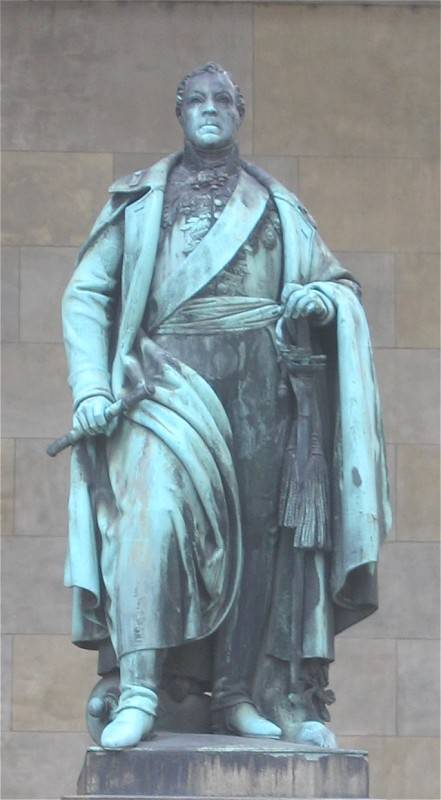
The blockade and then the fall of Hamburg, only postponed by the stubbornness of Marshal Davout until the abdication of Napoleon, can also be considered direct consequences of the collapse of the Rhine Alliance. The French emperor, taught by the sad experience of Acre, as you know, tried to avoid prolonged sieges of fortresses, but at the turn of the 1813 and 1814 years he actually threw his many garrisons in Germany.
He did not hide the calculations that he could rely on them in the new company, which he would start because of the Rhine. However, at the beginning of 1814, he had to fight on the other side of the great river, which was always considered the natural border of France.
On November 4, the Silesian army, led by Blucher, arrived at Giessen and Wetzlar, despite all the difficulties of the transition and bad weather. In the next two days, the Bohemian army entered the old German royal city - the capital of Hesse. The large audience did not hide the glee, however, it rejoiced more than once upon the entry of Napoleonic troops.
Thus ended the "allied agreements" of Napoleonic France with the princes of the Rhine Union. The campaign began in France, half against the decisive will of the allies, who were ready to make Napoleon the most alluring proposals for peace. Nevertheless, already on November 11, Field Marshal Blucher wrote to his wife:
After six weeks of long-awaited rest on New Year's Eve, Blucher's army crossed the Rhine at Kaub. Among the top officials of the Allies really eager for Paris, it seems, only this Prussian field marshal and Russian Tsar Alexander I.
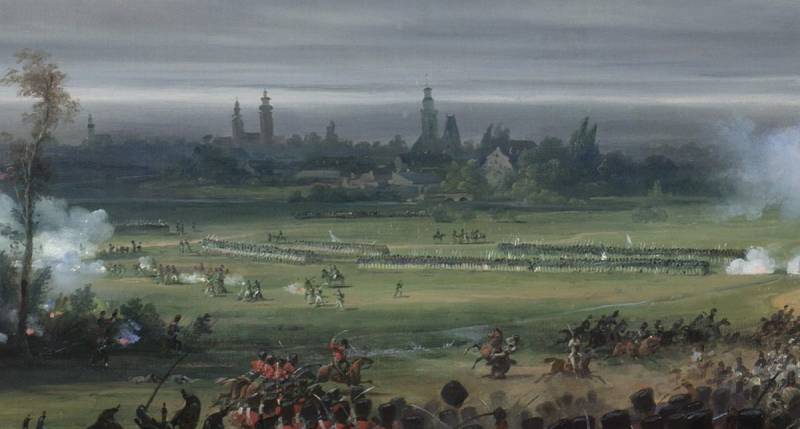
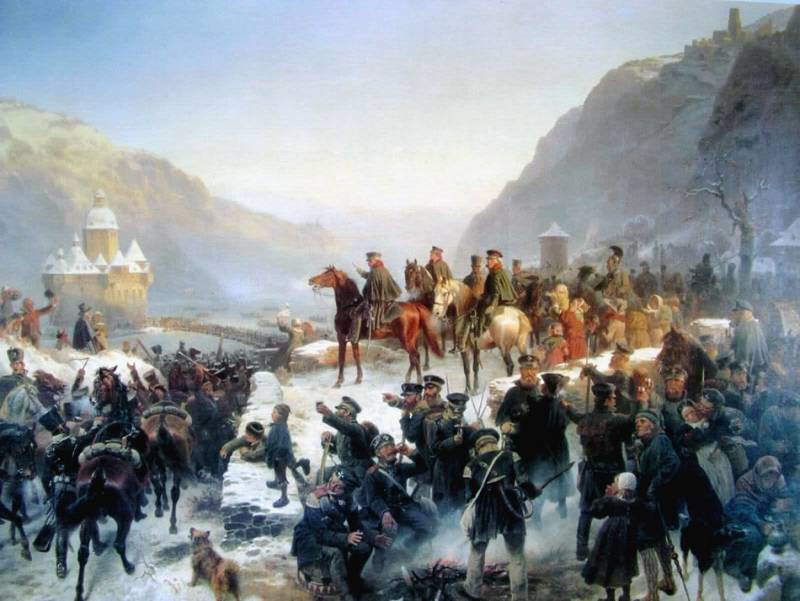
Information